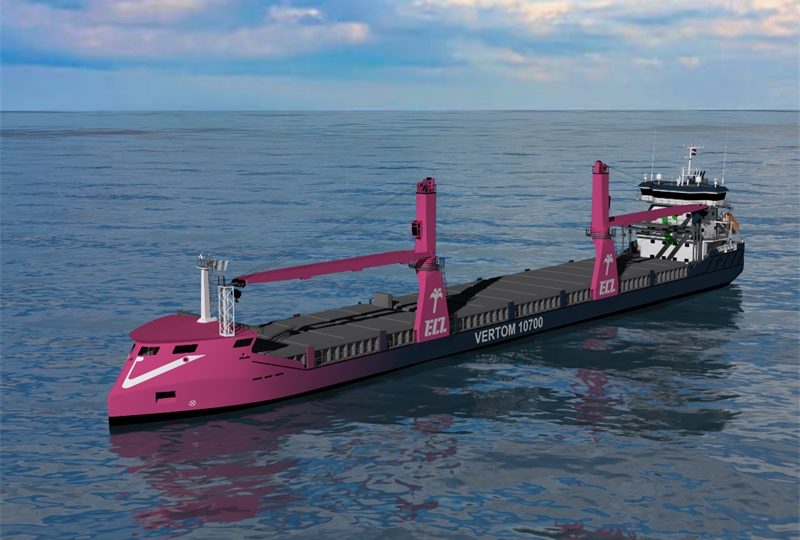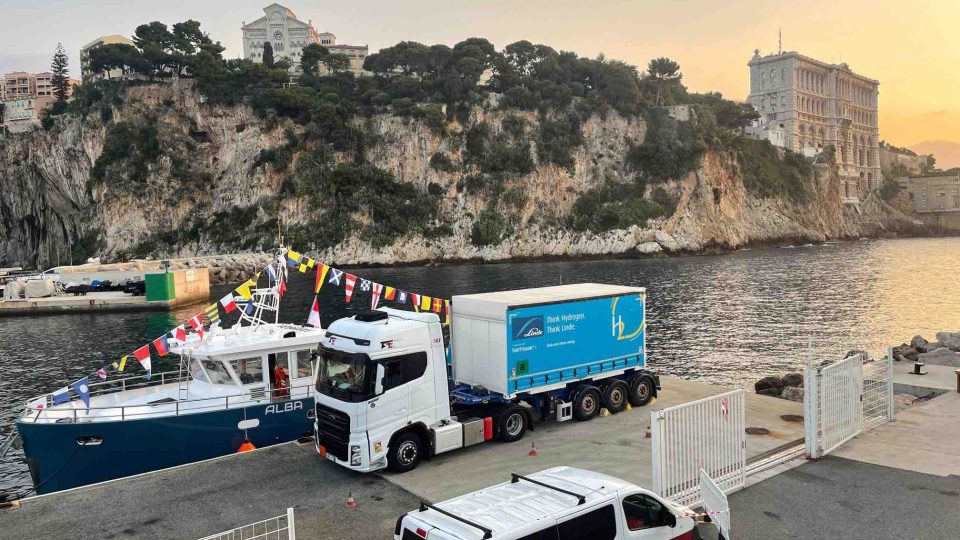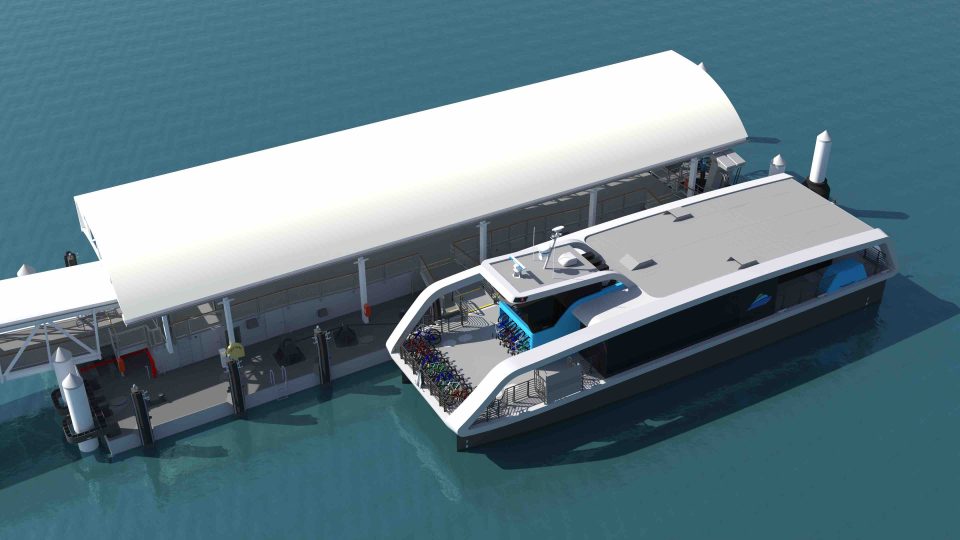Rolls-Royce: new Lake Constance ferry with mtu gas engines
"Richmond", the new passenger and car ferry of Stadtwerke Konstanz, is now out on test runs on Lake Constance. Sufficient power is provided by two 8-cylinder mtu gas engines of the Series 4000 from Rolls-Royce.
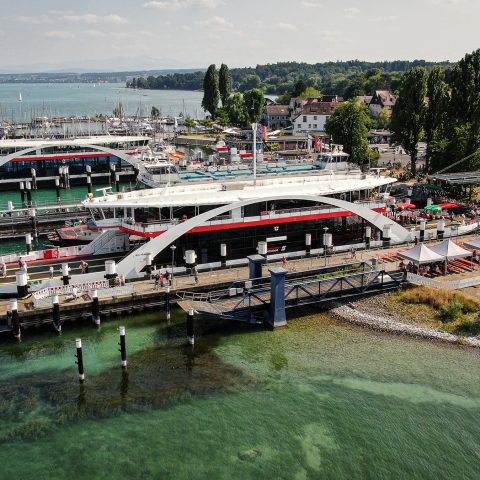
Full steam ahead for the new passenger and car ferry of Stadtwerke Konstanz: the recently christened 82.5-meter long “Richmond” is now out on test runs on Lake Constance. Sufficient power is provided by two 8-cylinder mtu gas engines of the Series 4000 from Rolls-Royce, each with an output of 746 kilowatts, driving Voith-Schneider propellers. Here, too, the special advantages of the new mtu propulsion system are already apparent: it is quiet, clean and causes hardly any vibrations.
First European inland ferry powered by pure gas engines
The ferry Richmond is the first European inland ferry equipped with pure gas engines. It has room for 700 passengers and 64 cars. The other five ferries operated by Stadtwerke Konstanz, which shuttle between Meersburg and Konstanz around the clock, are powered by mtu diesel engines. One visible difference is the eight-meter-high ventilation mast that is part of the LNG ferry’s safety equipment. Christoph Witte, technical manager of the Stadtwerke Konstanz ferries, said: ”In addition, the ship’s hull has been optimized to reduce the ship’s drag so that less energy has to be used for propulsion.”
mtu gas engines below IMO emission limits without exhaust gas aftertreatment
The first test runs with the mtu gas engines have delighted those responsible at the shipping company: “The engines have a particularly smooth-running culture and purr quietly like a kitten,” said shipyard manager Dieter Ehinger. The new propulsion system for tugs, ferries, push boats and special ships undercuts the nitrogen oxide limits of the current IMO III emissions directive even without exhaust gas aftertreatment, and the particulate mass is below the detection limit. Denise Kurtulus, Vice President Global Marine at Rolls-Royce Power Systems, explained: ”We are proud that Stadtwerke Konstanz has also chosen mtu engines for its latest ferry. We wish the shipping company a safe journey at all times and thank them for decades of intensive cooperation.”
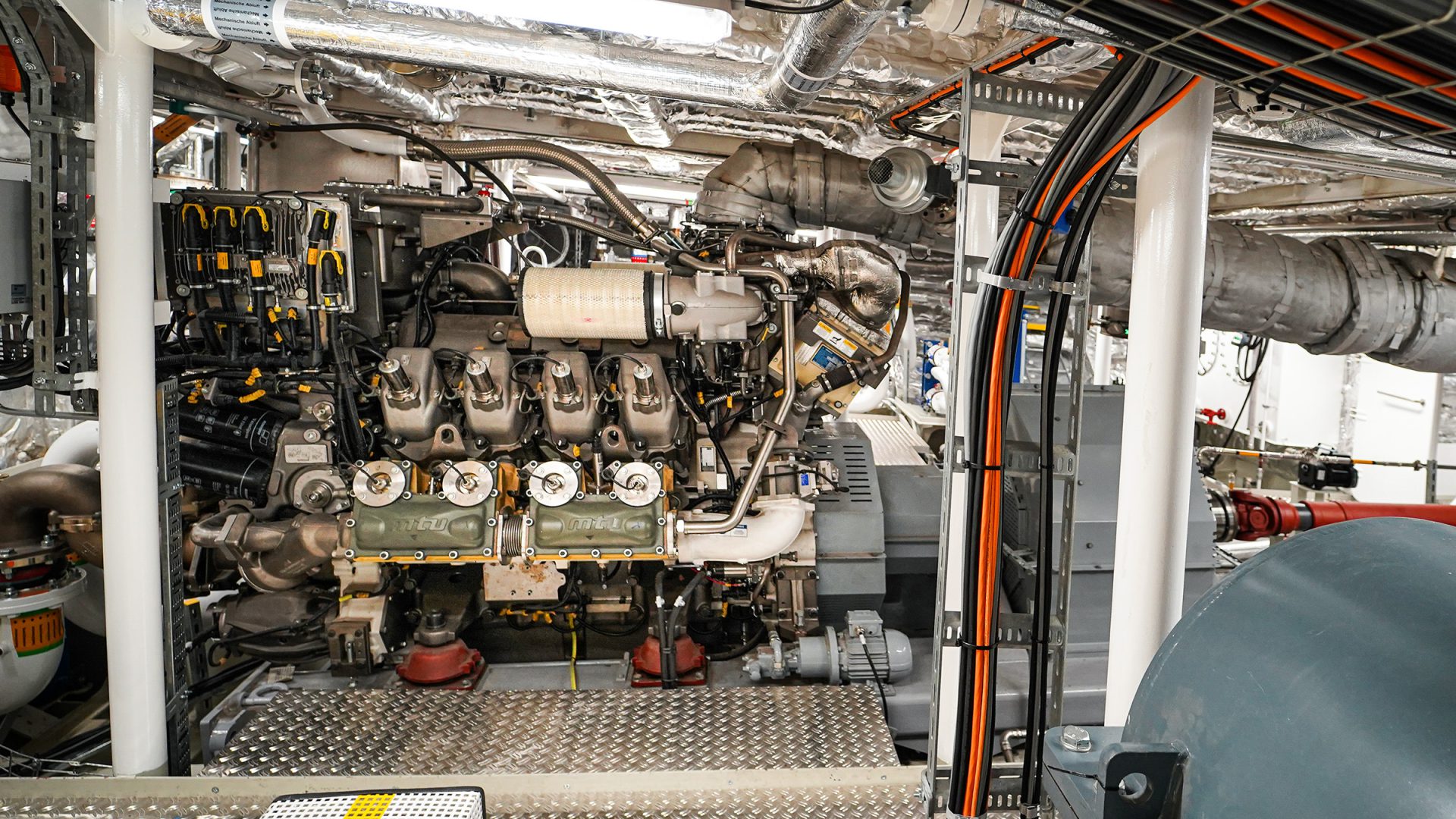
mtu gas engines: other solutions
On the North Sea in the Wadden Sea nature reserve, two catamarans from the Doeksen shipping company have already been operating reliably with new 16-cylinder mtu gas engines since 2021. Here, too, there was great enthusiasm among operators and passengers: the gas engines are particularly quiet, produce no vibrations, no unpleasant odor and no black smoke.
The business unit Power Systems of Rolls-Royce has now received orders for mtu gas engines as propulsion systems and on-board power generators for a total of eleven ships in Europe and Singapore. These include ferries, tugs and government vessels. Flensburg University of Applied Sciences is also using the benefits of this engine for an energy transition research project.






